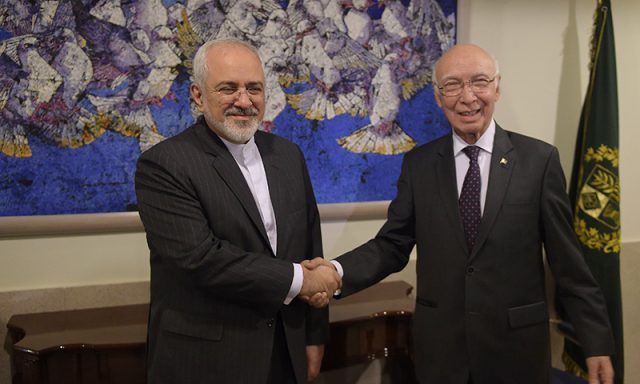News Analysis |
The heads of intelligence services from Pakistan, Russia, Iran and China sat down for talks in Islamabad to discuss the rising threat of Daesh in Afghanistan. The participants “stressed the need for a more active inclusion of regional powers in the efforts” to bring peace to Afghanistan. All the four countries agreed to eliminate terrorism from the region and avoid a similar situation like Iraq and Syria.
The defense sources revealed that a meeting of intelligence heads had previously been held in China in which all four-important regional players took a special review of the prevailing situation in Afghanistan. The participants clarified it was a cooperation of four countries against Daesh and related terrorists group, and not against any country.
The rise of Daesh in the region adds a new dimension to the already complex situation in Afghan war. Daesh poses a serious threat to the Taliban not only militarily but as an emerging rival for state sovereignty.
The increasing activities of Daesh in Afghanistan led to this meeting. The question of how to prevent the arrival of Daesh’s terrorists to Afghanistan from Iraq and Syria was discussed. All the four countries agreed to share intelligence information in this regard.
Sergei Ivanov, spokesman for Moscow’s Foreign Intelligence Service, informed that according to Russian intelligence agency there were some 10,000 terrorists of Daesh actively functioning in the nine provinces of Afghanistan, contrary to Afghan government claims that the number of Daesh’s terrorists is not more than 2000 in the country.
Read more: Is Daesh in Afghanistan benefiting from the mistrust between Islamabad and…
Iran raised reservation on the escalating violence in Afghanistan. All the members agreed that terrorists had found space in areas of Afghanistan where the government had no control. The US military had assessed that the Afghan government controlled less than 60 percent of the country’s territory. Pakistani officials maintained that the terrorist outfit had found safe havens in these ungoverned areas and were planning attacks against them.
The defense sources revealed that a meeting of intelligence heads had previously been held in China in which all four-important regional players took a special review of the prevailing situation in Afghanistan.
The Middle East has recently been plagued by terrorist groups like Daesh, which aim to create a caliphate. They claim to be Islamic but their actions are anything but committing crimes against humanity against not only non-Muslims but also Muslims.
Daesh has shifted its attention to Afghanistan after losing its strongholds in Iraq and Syria. They gained entry after death of Mullah Omar in 2015 and the subsequent infighting among the Talban leadership. Calling themselves as the Khurasan Branch or ISKP, they have been involved in bombings in the war-torn country and suicide attacks against neighboring countries like Pakistan.
Read more: Daesh in Kashmir: A Hindutva dream come true
The rise of Daesh in the region adds a new dimension to the already complex situation in Afghan war. Daesh poses a serious threat to the Taliban not only militarily but as an emerging rival for state sovereignty.
Pakistan, Russia, Iran and China all maintain contacts with the Taliban, hoping to persuade the insurgency group to seek a peace settlement with the Afghan government. But the diplomatic ties with insurgents have upset both the US and Afghan government who see it as an attempt to legitimize the Taliban. Whatever solution the regional powers may seek, it is imperative that they involve the joint effort of all the stakeholders.














